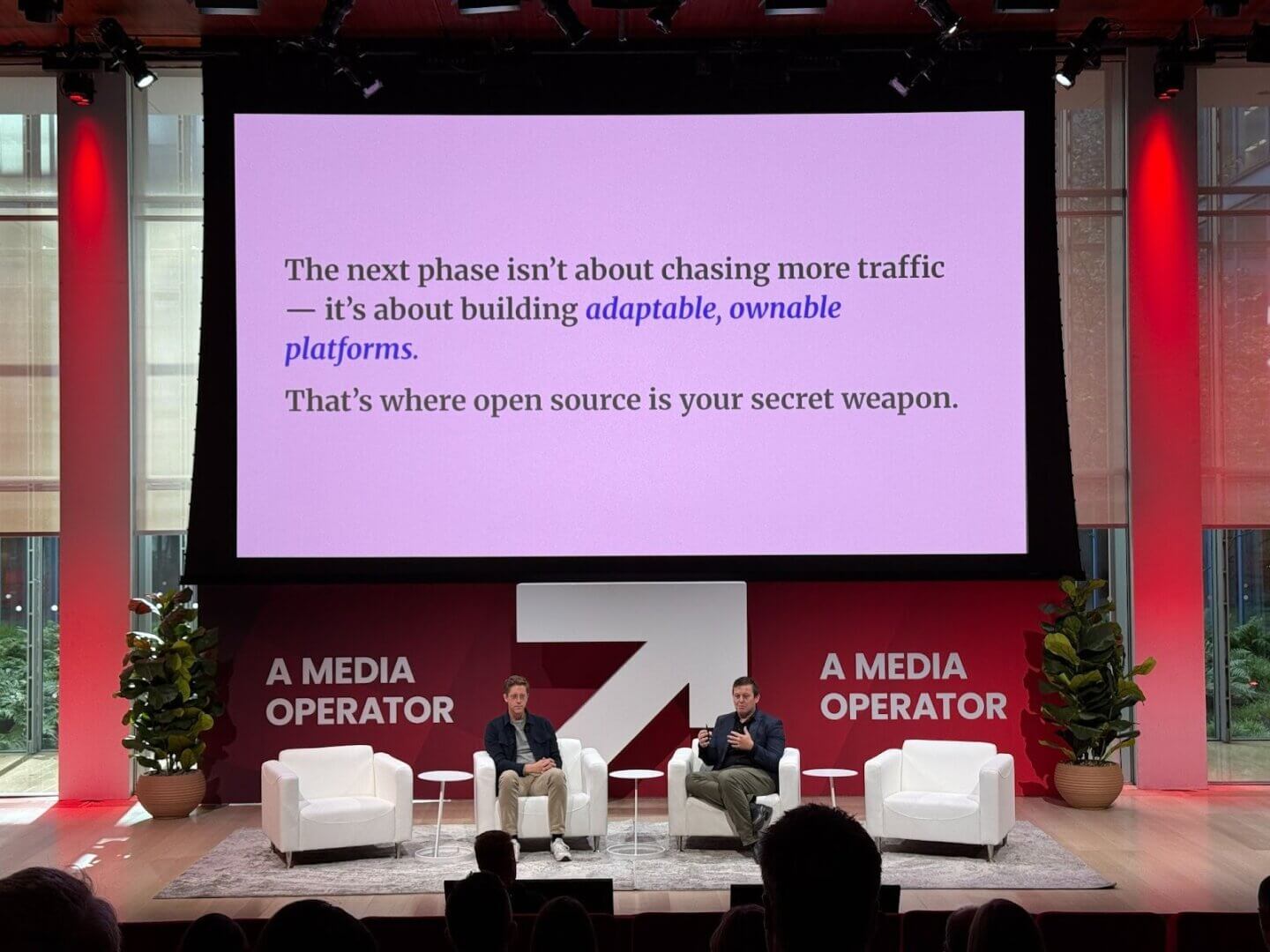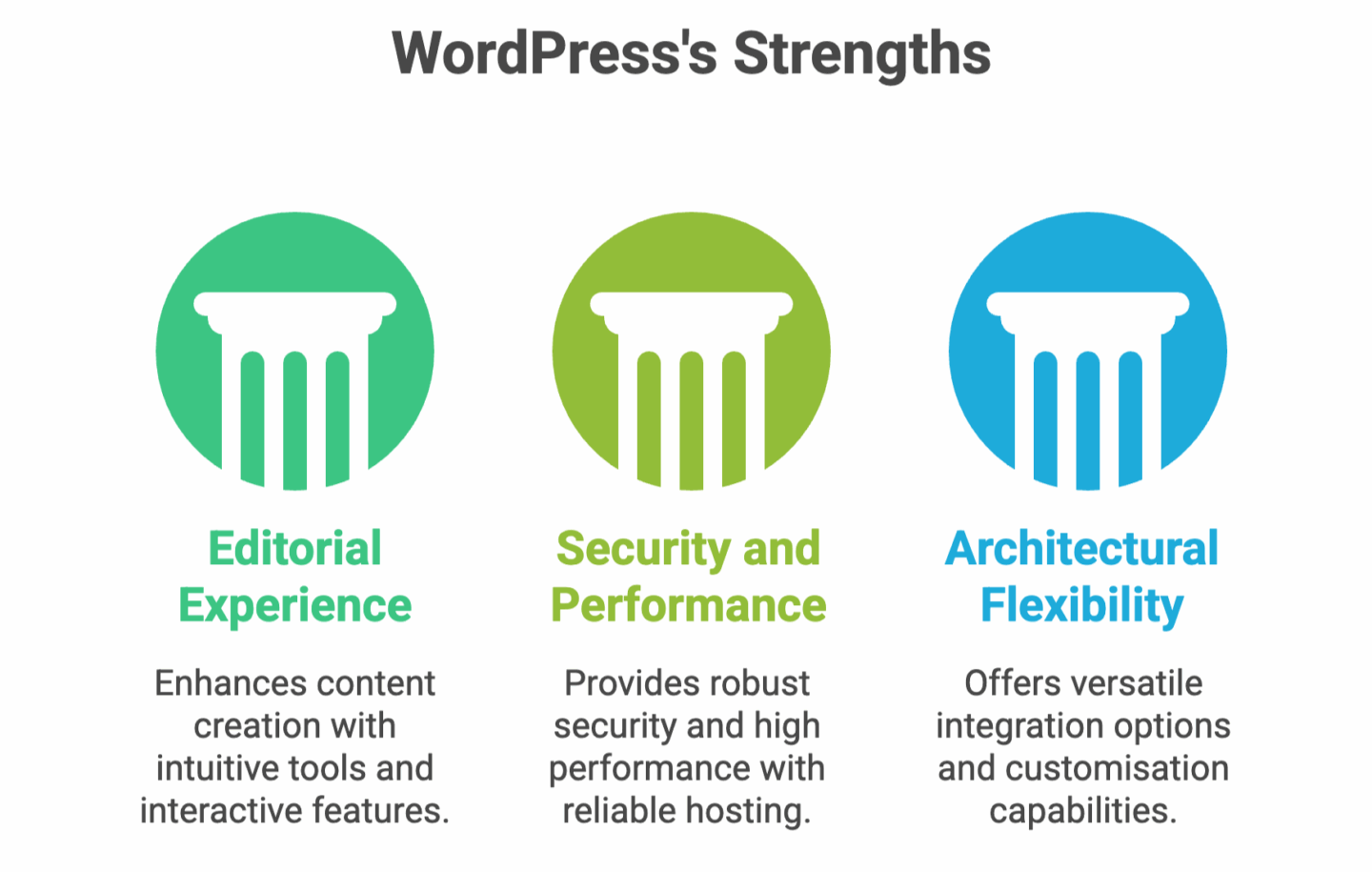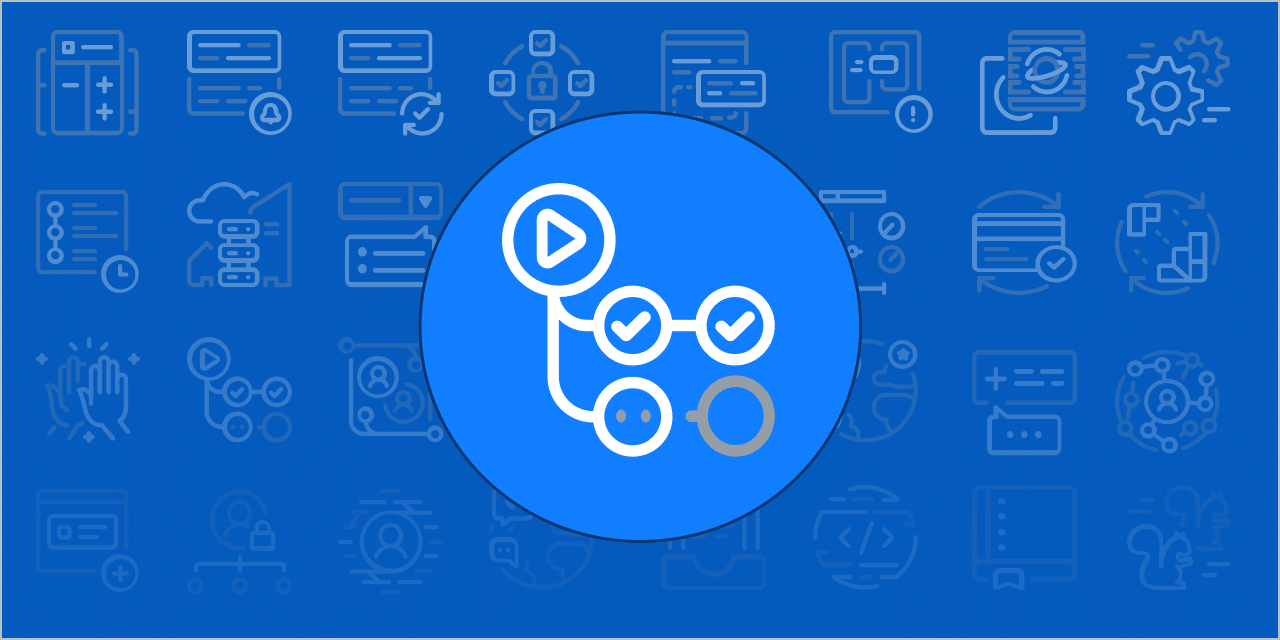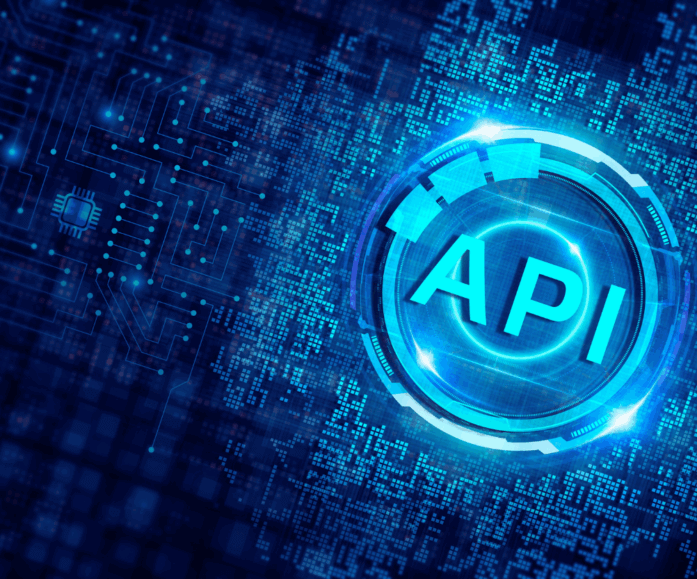
Why Smart Media Companies Are Choosing WordPress
Earlier this month, The Code Company and WordPress VIP presented at the AMO Summit in New York. Filled with a room of people who run media companies, we wanted to talk briefly about one of the most foundational elements of any media and publishing company.
Your CMS is a bit like a restaurant dishwasher. Nobody comes for it, but if it’s unreliable, the whole operation falls apart.
The truth is your CMS isn’t glamorous, but it is foundational. Done right, it disappears into the background and lets you focus on growth. But when it goes wrong, it becomes dead weight around your neck, slowing launches, increasing costs, and blocking innovation.
What’s Really on Media Operators’ Minds?
If you’re in media and publishing, you’re already thinking about how to rebuild your business for the future. The questions every operator is facing right now are:
- How do we cut costs without sacrificing quality?
- How do we increase company valuation?
- How do we diversify revenue streams?
- How do we navigate the AI wave?
Here’s the thing: every one of these challenges gets harder when you’re locked into a platform that’s not flexible enough. Or worse, if you’re still building your own CMS in 2025.
The Web Isn’t Going Anywhere, But It’s Evolving
Let’s address the obvious question: shouldn’t we be organising the funeral for the website?
I don’t think so. The web isn’t going anywhere.
Just because we’re in a post-traffic world, doesn’t mean the web is over.
The way publishers operate and use the web is changing. The future isn’t big, monolithic systems. It’s smaller, more agile, and composable platforms. The central question becomes: how do you stay nimble, reduce risk, and build a valuable business?
The Next Phase Isn’t About Chasing More Traffic
Raw traffic doesn’t impress advertisers or investors anymore. The age of eyeballs is over.
Super-niche publishers are forcing bigger players to move faster to stay competitive. When anyone can spin up a Beehive account and instantly become a publisher, the real differentiator becomes how adaptable your platform is.
Moving into subscriptions, memberships, commerce, or integrating the latest AI tools isn’t just a business challenge. It’s a technology challenge.
That’s where open source makes the difference. If you’re on a proprietary CMS, every pivot is tied to a vendor roadmap and a licensing model. If you’re building your own CMS, that takes even more resources, time, and money.
On WordPress, you can adapt quickly, test ideas, and keep ownership of your audience and IP.

Why WordPress?
Sometimes people think of WordPress as just a blogging tool or something for small websites. But in reality, it’s very different.
WordPress powers 43% of the entire web and over 60% of the CMS market. It’s trusted by the biggest media brands in the world, from TIME and News Corp to ambitious operators like Firecrown.
It’s also constantly evolving. The community, the ecosystem, and the integrations mean you’re not betting on something static. You’re betting on the most proven and widely adopted CMS in the world.
When we talk about flexibility, ownership, and adaptability, we’re not talking theory. We’re talking about a platform that’s already battle-tested at scale.
The Best of Both Worlds
WordPress sits right in the middle of the “build it” versus “buy it” debate. You get the flexibility and control of a custom-built platform without the ongoing maintenance burden. You get the reliability and feature set of an enterprise CMS without the vendor lock-in.
Where WordPress Excels
Let me break down the three areas where WordPress really shines for publishers:
1. Editorial Experience
The Block Editor has transformed how content teams work. What used to take a developer a month to hand-build (say, an interactive quiz) can now be done by an editor or designer in minutes.
“Now that it’s visual, editors and designers can do it themselves. The investment is low, but the long-tail traffic is huge.” – Seth Rubenstein, Head of Engineering, Pew Research Center.
Everything should be a block. This helps you scale. Interactive content is not something you can summarise. It requires people to visit your site to experience it properly. And when you make it easy for your team to create that kind of content, you create more reasons for people to visit.
2. Security and Performance
WordPress has matured into an enterprise-grade platform. With the right hosting partner (like Kinsta or WP Engine), you get:
- Zero-downtime deployments
- Automatic security updates
- Enterprise-level support
- Performance optimisation out of the box
Take Konica Minolta’s experience. Their original site on Kentico DXP was experiencing significant downtime every month. After migrating to WordPress, they’ve had zero outages and seen faster load times across the board.
3. Architectural Flexibility
WordPress works with any tech stack. Whether you want to use it as a traditional CMS or as a headless content API, you can. You can integrate it with your existing martech tools, ad platforms, subscription systems, or build custom applications on top of it.
The ecosystem is massive. When you need a specific integration, there’s usually already a plugin for it. And if there isn’t, the platform is open enough that you can build it yourself or hire someone to build it for you.

Real World Success: Don’t Just Take Our Word for It
Let’s look at how three different publishers solved their CMS challenges with WordPress:
Case Study 1: How the Australian public broadcaster SBS migrated multiple Drupal websites to WordPress in 6 months to fit their ‘audience-first’ strategy.
Case Study 2: How Australia’s biggest youth publisher, Pedestrian.tv re-platformed from a custom CMS to WordPress to keep up with their rapid growth.
Case Study 3: How the #1 US publication for college women, HerCampus migrated 11 years of content from Drupal ot WordPress to meet the business’s growing needs.
The Ecosystem Advantage
One of WordPress’s biggest advantages is the ecosystem around it. Major media companies like TIME, Freightwaves, The Wall Street Journal,, Truthdig, HerCampus and more.
This isn’t a “wait and see” situation anymore. The platform has already proven itself at the highest levels of digital publishing.
Your CMS Decisions Impact Your Bottom Line
Your CMS decisions aren’t just technical choices. They directly affect your costs, your agility, and your company value.
The right platform lets you:
- Reduce development costs
- Launch new features faster
- Attract better talent (because everyone knows WordPress)
- Retain ownership of your technology
- Maintain flexibility as your business evolves
The wrong platform becomes an anchor, dragging down every initiative and making change expensive and slow.
Nothing Is Sacred
You can’t be overly precious about past decisions. The business landscape is changing too fast.
What made sense five years ago might not make sense today. But when the landscape shifted, the smart publishers shifted with it.
Your CMS should enable that kind of agility, not prevent it.
Want to Talk?
If you’re looking at your current platform and wondering whether it’s helping or hindering your growth, let’s chat. We’ve helped dozens of media owners across the globe discover the best way to build, operate, and monetise their digital publishing platforms.
The web is here to stay. But the systems that power it need to evolve. WordPress gives you that evolution without the risk of building everything yourself or the constraints of proprietary platforms.
Want to discuss how WordPress could work for your organisation? Get in touch with our team to start the conversation.

